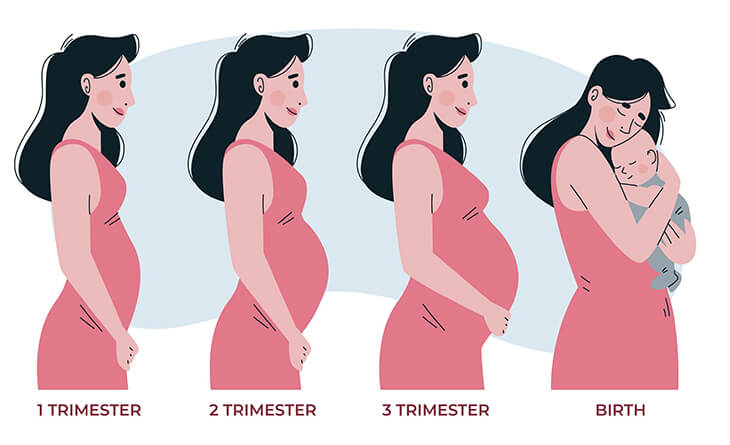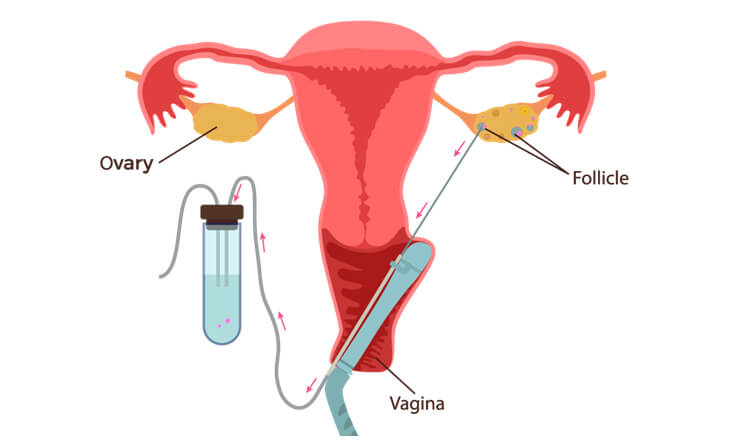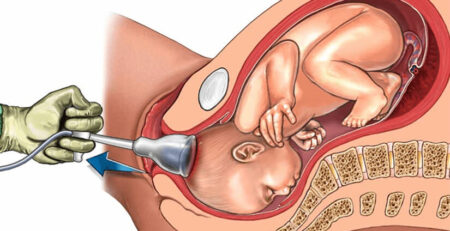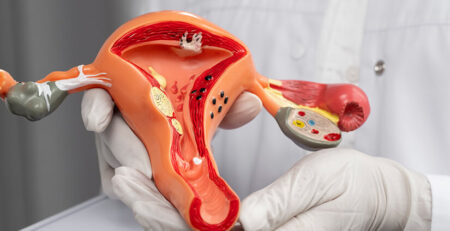How is IVF Done Step by Step?
In the world of assisted reproductive technology (ART), IVF treatment comes first, for good reason. It brings a dream to reality, supporting couples to become parents.
While the concept of IVF – combining egg and sperm in a lab – may appear simple, the actual procedure is quite complex. But the magic of IVF extends far beyond this simple concept.
Understanding what’s involved in the IVF process will prepare you mentally and physically for this exciting journey. So, if you are considering IVF treatment, this guide will help you make an informed decision.
Steps Involved in IVF Procedure
Basically, the IVF procedure is divided into four steps: testing and ovarian stimulation, egg retrieval, fertilization and embryo culture, and embryo transfer.
Let’s understand these steps in detail.
Step 1: Testing and Ovarian Stimulation
The procedure starts with a consultation. First, you will meet your IVF specialist and discuss your medical history, fertility concerns, and treatment options with your doctor. Your IVF specialist in Delhi will answer all questions. Once satisfied, your doctor will perform a blood test or other examination to understand your menstrual cycle, ovarian reserve and hormonal level.
Based on these tests, your doctor will start your procedure by prescribing the injections for 10-12 days. These injections are given to stimulate your ovaries to produce multiple eggs. But it does stop here. Regular transvaginal ultrasounds (3-4 times) are performed to monitor the growth and development of egg follicles. This procedure is called follicular monitoring.
Once your follicle is mature enough, it’s time to give the final push. Your doctor will give a final hCG injection to trigger the maturation.
It’s just the beginning of the procedure. So keep a positive mindset and keep smiling.

Step 2: Egg Retrieval
The next step, egg retrieval, is a little invasive. But don’t worry because this step is performed under anaesthesia so that you won’t feel any pain or discomfort. Also, it is just a 5-minute procedure, so you need not stay at the hospital overnight.
After 35-36 hours of trigger injection, you will need to visit your IVF centre. After putting you under anaesthesia, your doctor will insert a needle through the vagina, which is guided by ultrasound, to extract the follicular fluid. This follicular fluid contains the eggs. This egg-containing fluid is then sent to the laboratory for further examination.
On the same day of egg retrieval, your husband will provide the semen sample, which is washed and prepared for fertilization.
Take a deep breath because you are approaching your dream.

Step 3: Fertilization and Embryo Culture
After careful examination, the embryologist will choose the motile sperm to fuse with the eggs. This process is called fertilization. Do you know there are two different approaches to fertilizing the egg? One is conventional IVF, and the second one is ICSI.
In conventional IVF, the embryologist will take the washed sperms and keep them with the egg in a petri dish, allowing them to fertilize naturally. On the other hand, in ICSI, the embryologist picks a single motile sperm and injects it directly into the egg with a micromanipulator for fertilization.
But why choose ICSI? If the sperm count is very low, there is poor sperm motility, abnormal sperm morphology, unexplained infertility, or previous IVF attempts fail, then your IVF specialist in Delhi may recommend ICSI to enhance the chances of IVF success.
After fusing the egg with sperm, the embryologist will put the petri dish in an incubator for 3-5 days to give optimal environmental conditions for embryo growth. This embryo will undergo a four-cell division and then an eight-cell division stage to finally become a blastocyst. The embryologist will keep an eye on the development and quality of this growing embryo.
Step 4: Embryo Transfer
Now comes the last but the most important step of IVF treatment: embryo transfer. The embryologist will examine the embryos and grade them (good or bad) according to their quality. One or two good-grade embryos are selected and transferred into the uterus.
The best part of this procedure is that it is painless, so no anaesthesia is required. The embryologist will insert a thin catheter through the cervix to place the embryo on to the uterus lining. This procedure is guided through an ultrasound to avoid any issues.
You need to rest for a short period. Your IVF specialist in Delhi will give you some instructions to enhance your chances of IVF success, and then you can go home.
Here is the most exciting thing that you need to know. Approximately 12-14 days after embryo transfer, your doctor will perform a test to confirm your pregnancy. This is the time for patience, self-care, and maybe even some light distraction because you are going to be a mommy soon.
Remember, every IVF journey is unique, but with expert guidance and support and a deep understanding of the process, you can navigate the path confidently. So, trust your doctor and stay positive.
How to Prepare for IVF Treatment?
Undergoing an IVF treatment can be very stressful. It is a financial and emotional investment. Therefore, you should be mentally and physically prepared for the procedure. Here are a few tips that you can follow to prepare yourself for IVF treatment:
Physical Preparation: Visit your IVF specialist in Delhi for a complete fertility assessment. This will help you and your doctor to determine the cause of infertility and ensure that you are physically ready for IVF.
A healthy BMI is very important for a successful IVF treatment. For this, maintain a healthy weight by
- eating a nutritious diet rich in whole foods, fruits, vegetables, and lean protein
- Limiting processed food and caffeine intake
- Exercising regularly
- Quitting smoking and alcohol
- Managing stress level
Also, take prenatal vitamins or other supplements as recommended by your doctor.
Emotional Preparation: The fear of failure of IVF treatment can make you stressful. But trust your doctor and get support from your friends, family, or a therapist to manage the emotional challenges of IVF.
You can also contact other people going through similar experiences to boost your confidence. If needed, seek guidance from a mental health professional who specializes in infertility.
Keep yourself busy with activities like yoga, meditation, or mindfulness exercises to stay relaxed and reduce stress.
Choose Your Fertility Clinic Very Carefully: It is the most important part of starting your IVF journey. Do your own research and choose a clinic with experienced staff, high success rates, and a team you feel comfortable with. You can also get recommendations from people who have undergone IVF procedures.
Make sure that the IVF specialist you have selected answers all your questions regarding the procedure, from ovarian stimulation to egg retrieval and embryo transfer, the success rate and cost. Ensure the clinic and the lab are equipped with the latest technology and follow all the safety and security protocols.
How Do You Increase the Chances of an IVF Success Rate?
IVF treatment is a big step towards making your dream of being a mother a reality. Being a little proactive after your embryo transfer can make a big change. During this crucial time, you need to adopt a few good habits. These may include:
- Take a proper rest, but that does not mean you have to lay on the bed for the whole day. A good night’s sleep for 8 hours and a two-hour power nap in the afternoon is enough to keep yourself fresh.
- Go for a short walk to relax, but avoid strenuous activities like running, jogging, cycling on slopes or weight lifting.
- Include colourful fruits and vegetables, healthy carbs, fatty fish and protein and eliminate processed food and surgery drinks from your diet. Stay hydrated. After all, you are nurturing a new life inside your womb.
- Follow your doctor’s instructions regarding taking medications or supplements.
- Avoid sexual intercourse for at least 10 days to increase the chance of successful implantation of the embryo.
- Limit smoking and alcohol consumption, as these substances can increase the risk of miscarriages or ectopic pregnancies.
- Avoid going to crowded places to reduce the chances of infections.
- It is tempting to check if the process works as planned, but it can also give a false report. Therefore, avoid taking a pregnancy test at least 12-14 days after the embryo transfer.
Taking these simple yet important steps will take you near your IVF success.
Conclusion!
While the IVF treatment procedure may appear complicated, each step is carefully planned to maximize your chances of success. But don’t worry! Understanding the crucial steps involved in and preparing yourself for the procedure brings clarity and a sense of control. While challenges may arise, remember you are not alone. But with expert guidance and support from IVF specialists like Dr Rhythm Gupta and a deep understanding of the process, you can navigate this path with hope and resilience.
Accept the challenges, celebrate the success, and remember that the smallest seed, when cultivated with care, can turn into a beautiful life.












